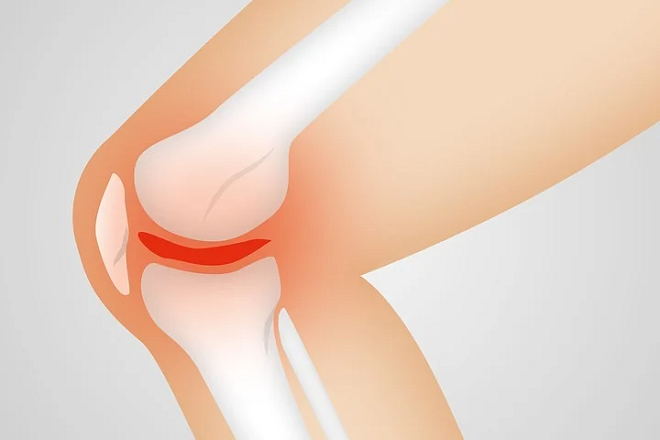Heart disease is still one of the top causes of death globally. According to World Health Organization, an estimated 17.9 million lives are taken each year due to cardiovascular diseases (CVD). While this fact is evident to many, we must also raise the awareness and urgency to prevent such life-threatening conditions.
Heart disease covers all conditions that affect the heart and its vessels, muscles, valves, and flow, as well as the other pathways to and from it. Such disorders can be genetically transmitted or gradually developed through lifestyle and other habits. Regardless of who is most susceptible, we must all carry the same level of urgency regarding CVD.
Types of Heart disease
As there are many parts of the cardiovascular system relevant to heart disease, it only follows that there are different conditions under it.
Aortic stenosis
The left ventricle is responsible for the flow of blood through the aorta. If the valve opening is narrow, blood flow will be restricted, and pressure in the left atrium will be severely affected. People can be born with aortic stenosis. It may cause problems like internal scarring upon growth.
Angina
Angina occurs when your heart is not getting any sufficient oxygen or nutrients regularly. This condition can be attributed to the narrowing of arteries or spasms within the coronary arteries. Angina differs from a heart attack since it does not cause damage to the heart.
Arrhythmia
If you have an irregular heartbeat, whether too fast or too slow, you might have an arrhythmia. This disorder occurs when the impulses in your body fail, leading to an improper heartbeat. Types of arrhythmia include tachycardia (fast heartbeat), bradycardia (slow heartbeat), premature contractions (early heartbeats), and atrial fibrillation (irregular heartbeat).
Atherosclerosis
Arteries are the veins that carry oxygen and nutrients from the heart to the rest of the body. Thus, when its walls thicken and become narrow, a buildup of plaque may happen. That buildup can take place in any part of the body and cause difficulty in blood flow.
Congenital heart defects (CHDs)
As the name suggests, congenital heart defects start from birth. Signs of CHD cannot be detected immediately, but they can become apparent with a routine medical checkup. Some of the symptoms to monitor include hyperventilation, cyanosis, and fatigue, Types of CHDs include abnormal heart valves (leaking of blood), septal defects (holes inside the heart), and atresia (missing valve).
Coronary artery disease
The most common type of heart disease, coronary artery disease occurs when the arteries become clogged with plaque, causing atherosclerosis. If left unattended, the internal blood supply gets reduced, and the heart absorbs less oxygen and nutrients. This, in turn, wanes the heart muscles, leading to heart failure.
Dilated cardiomyopathy
Dilated cardiomyopathy is the most common type of heart muscle disorder. For this case, if the heart chambers become widened, the heart muscles become thinner, leading to an enlarged heart that cannot function properly. Heart attacks, arrhythmias, and blood clots can be precursors to dilated cardiomyopathy.
Heart failure
Heart failure occurs when it is unable to pump blood as required by the human body. It does not generally mean that the heart is not functioning its purpose to pump blood. However, if this occurs regularly, it can lead to other heart diseases like high blood, coronary artery disease, and others
Heart infections
Heart infections are often caused by germs, bacteria, viruses, and other parasites. They can enter your heart and infect the most vulnerable parts. A common type of this infection is endocarditis, an inflammation of the inner layer of the heart.
Hypertrophic cardiomyopathy
Another genetic heart disease, hypertrophic cardiomyopathy happens when the offspring’s genetic makeup impacts the heart muscle before birth. The walls thicken, and contractions become harder inside the heart. As a result, the heart’s ability to pump blood becomes affected, and inadvertent obstructions may occur. Symptoms are hard to detect on this.
Mitral valve prolapse
The mitral valve is located between the left heart atrium and left ventricle. If the valve flaps do not close properly, this can lead to a heart murmur. This prolapse may either be genetic or connected to tissue problems. It may not seem significant, but immediate treatment is nonetheless necessary.
Mitral valve regurgitation
The mitral valve is crucial to the regular blood circulation in our body. If the valve does not close tightly, the blood is sent back to the heart, causing pressure in the veins that connect to the lungs and enlarging the heart itself, causing heart failure.
Myocardial infarction
Our blood must circulate at an uninterrupted rate. Otherwise, it may damage or destroy part of the heart muscles. In other cases, the arteries may spasm. People familiar with heart conditions may know this as plaques or blood clots, a condition that can lead to heart attacks.
Peripheral arterial disease
In peripheral arterial disease, the circulation of the blood to the limbs becomes either blocked or decreased, leading to less oxygen and nutrients being distributed in other parts of the body, especially in the arms and feet. Signs of peripheral arterial disease are evident in the thighs or feet.
Causes of Heart Disease
With these many types of heart diseases identified by specialists, causes for such cardiovascular conditions can come from many different sources; at times, various factors may even come into play. Nevertheless, there are several risky areas to take note of to avoid heart diseases to occur.
Cholesterol Intake
Cholesterol is acquired through fatty or salty food. The more cholesterol stuffed in your blood vessels, the faster they narrow and the higher the risk for CVD.
Diabetes
The same goes for diabetes, whether inherited or developed. If the blood sugar becomes too high, it can cause severe narrowing in the blood vessels, leading to risks.
Family history
Speaking of inherited conditions, your biological background and ethnicity can also make you at risk of diseases. If a relative or a parent has a history of diabetes, for instance, it is best to confirm to your doctor if you have or at risk of it, too.
High blood pressure
High blood pressure or hypertension speeds up our blood circulation, resulting in damage to the vessels and speeding of the heart rate.
Inactivity
No regular body movement leads to less circulation of the blood, and it is likely that cholesterol levels, blood pressure, and chances of obesity will also rise.
Obesity
Speaking of obesity, being overweight truly affects the heart and the body as it puts you at risk of diabetes and high blood pressure. Be mindful of your diet. Regularly check if your body mass index reaches 25 or above.
Smoking
The harmful substances inside a stick of cigarette can cause gradual harm not only to your lungs but also to your heart and the blood vessels. Smoking is a risk factor.
Vices
Other than smoking, destructive lifestyle habits can also lead to heart diseases. Excessive alcohol consumption, drug use, and unhealthy diets increase cholesterol, body mass, and blood pressure.
Heart Disease Treatments
Heart disease may seem like a death sentence, but they can be prevented if necessary precautions are taken. Here are some advisable steps to follow:
Active lifestyle
An active lifestyle gets the blood flowing seamlessly, allowing every organ to function evenly. Thus, find time every day (30 minutes or more) to do small exercises or warm-ups and even strenuous activities.
Healthy diet
A well-balanced diet is not just a fitness fad; it is necessary to get all the nutrients for your body, especially your heart. Consider these food groups:
- Vegetables
- Fruits
- Grains
- Beans or legumes
- Fish and lean meats
- Low-fat dairy foods
- Healthy fats
Get enough hours of sleep
Sleep is a necessity for our bodies. As adults, 6 to 8 hours is required, and those who do not get efficient sleep are bound to be at risk of obesity, heart attacks, and mental breakdown.
Manage your stress levels
Stress can be a major source of high blood pressure. If we do not keep our mental, physical, and emotional health in check, we may have to cope with our stress through unhealthy habits like overeating, drinking, and smoking.
Never smoke or use tobacco
Speaking of which, this is an extreme warning that people at risk should stop smoking. Chemicals in tobacco cause ripple effects in the heart and blood vessels, increasing heart pressure. It also puts others at risk (secondhand smoking).
Regular checkups
Finally, if we have opportunities for annual checkups, consider them if symptoms or risks for heart diseases are present. In addition, take health screenings for blood pressure, cholesterol levels, and heart rates.
Final Takeaways
Regardless of whether we inherit the risks, we have an obligation to take care of our hearts. It takes wise and proactive decisions, such as a healthy diet and an active lifestyle, to prevent such diseases from worsening. And we have to entrust our hearts to the best practices possible.
Heart diseases may be lethal killers when ignored, but there are ways to safeguard yourself and others from them. Safety starts in the heart.
Dr. Jolina began her journey as a health care professional when she took her medical degree in one of the most prestigious med schools in the Philippines.
With a solid foundation, the Thomasian took her residency training in internal medicine at Capitol Medical Center. Deciding her calling was to help treat people suffering from diabetes, she took her clinical fellowship at the Institute for Studies on Diabetes Foundation, Inc (ISDFI).
To further her studies, she proceeded to take her Master of Science in Diabetology at UERM-ISDFI and is currently completing her thesis. Apart from serving as a consultant for the For Your Sweetheart website, Dr. Jolina is a visiting faculty at the ISDFI and is currently practicing in Quezon City.




